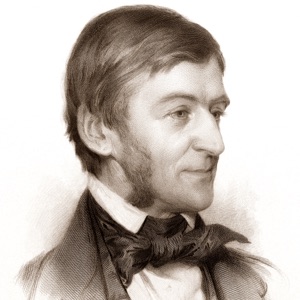
Ralph Waldo Emerson (1803 – 1882) was an American essayist, lecturer, philosopher, and poet who led the transcendentalist movement of the mid-19th century. Emerson served as a junior pastor in Boston’s Second Church, but after his first wife’s death, he began to disagree with the church’s methods, eventually leading to his resignation. Upon his return home from a tour of Europe in 1833 he began writing his first published essay, Nature. In March 1837 Emerson gave a series of lectures on the philosophy of history in Boston, which began his career as a lecturer. He eventually gave as many as 80 lectures a year, traveling across the United States. He disseminated his thoughts through dozens of published essays and more than 1,500 public lectures.

Quotes by Ralph Waldo Emerson…
Belief consists in accepting the affirmation of the soul; unbelief, in denying them.
Society everywhere is in conspiracy against the manhood of every one of its members… Self-reliance is its aversion.
There is a third silent party to all our bargains. The nature and soul of things takes on itself the guaranty of the fulfilment of every contract, so that honest service cannot come to loss. If you serve an ungrateful master, serve him the more. Put God in your debt. Every stroke shall be repaid. The longer the payment is withholden, the better for you; for compound interest on compound interest is the rate and usage of this exchequer.
I would study, I would know, I would admire forever. These works of thought have been the entertainments of the human spirit in all ages.
All our progress is an unfolding, like the vegetable bud. You have first an instinct, then an opinion, then a knowledge, as the plant has root, bud, and fruit. Trust the instinct to the end, though you can render no reason.
One of the most wonderful things in nature is a glance… it transcends speech… it is the bodily symbol of identity.
Truth is too simple for us… we do not like those who unmask our illusions.
You cannot do wrong without suffering wrong.
There is a remedy for every wrong and a satisfaction for every soul.
This energy does not descend into individual life on any other condition than entire possession. It comes to the lowly and simple; it comes to whomever will put off what is foreign and proud; it comes as insight; it comes as serenity and grandeur.
